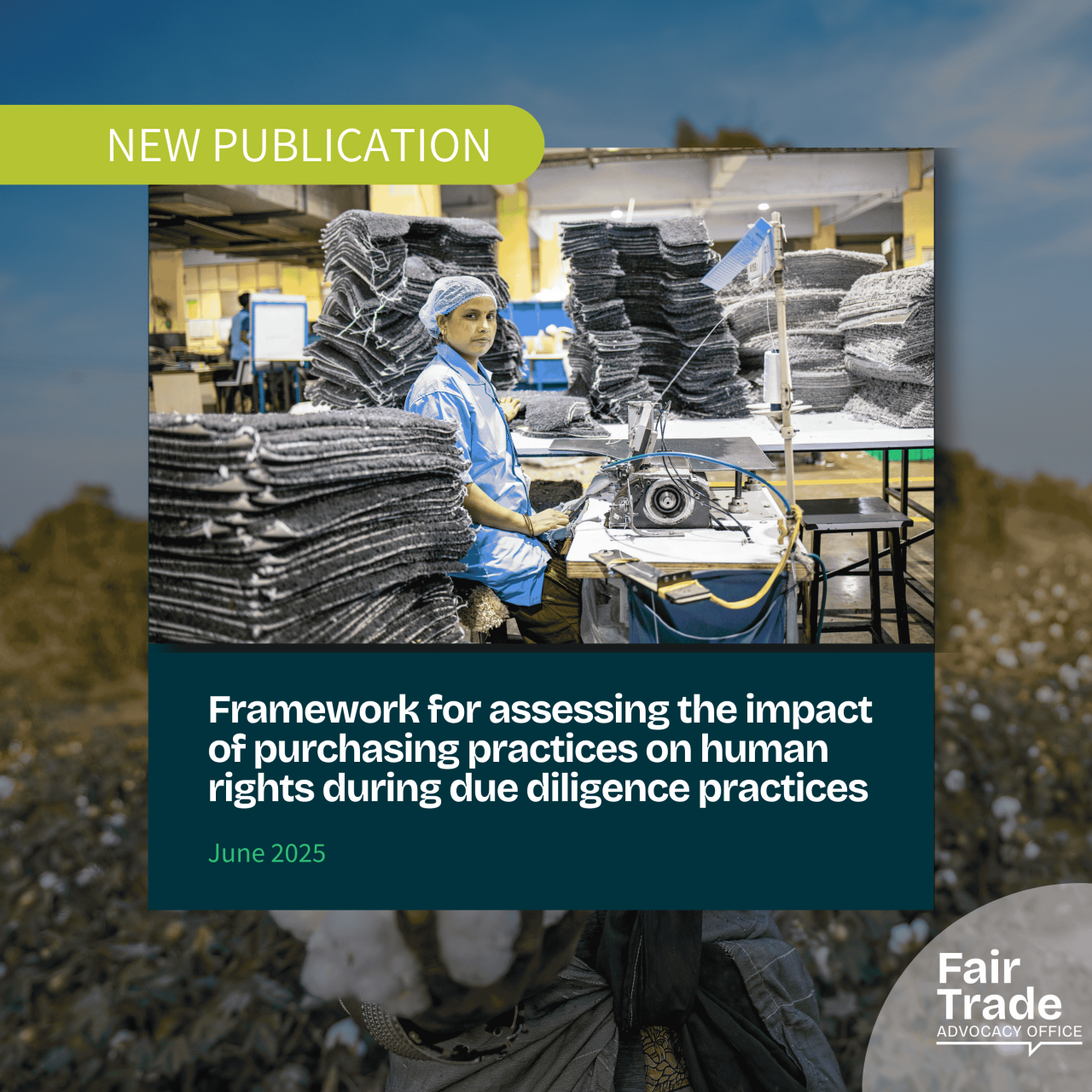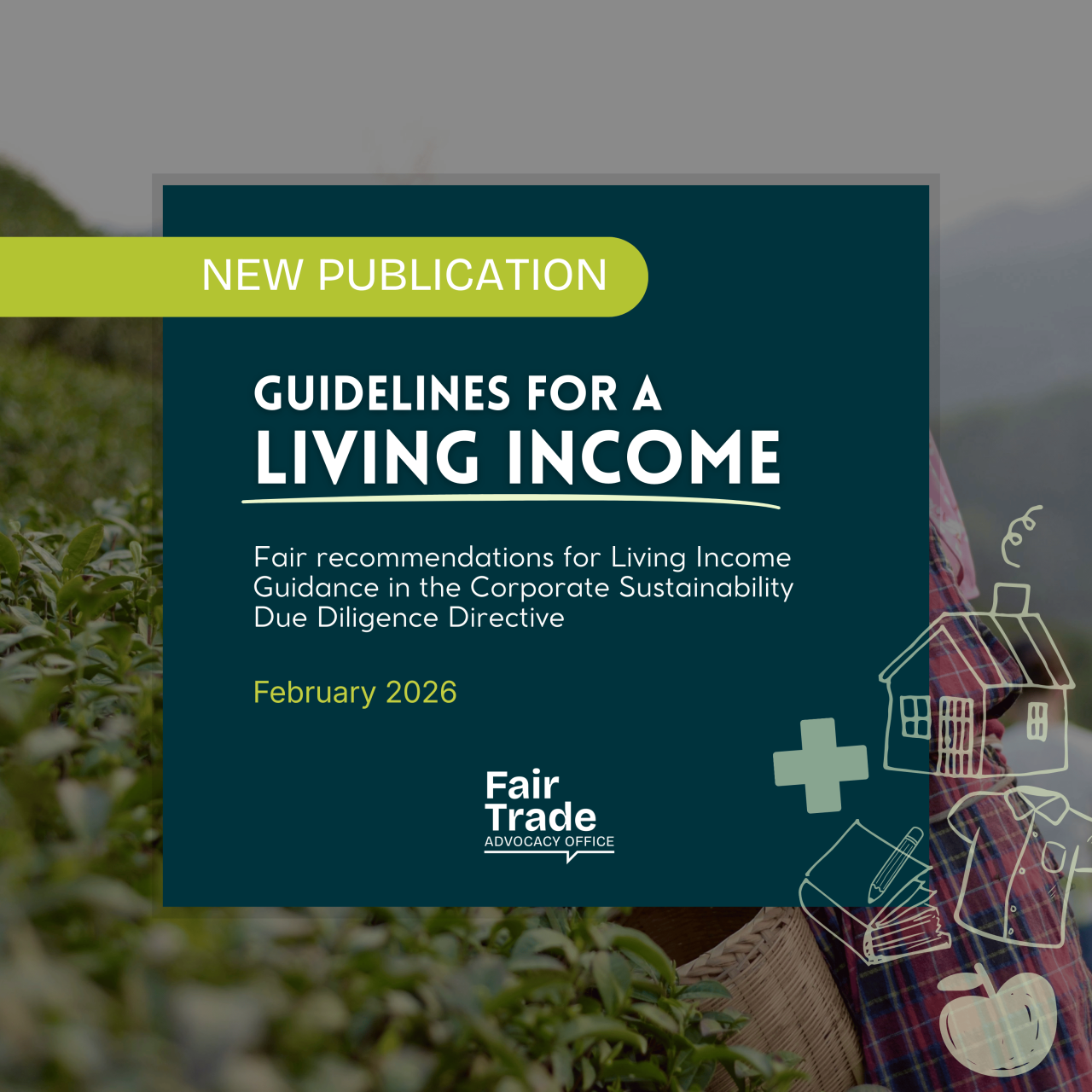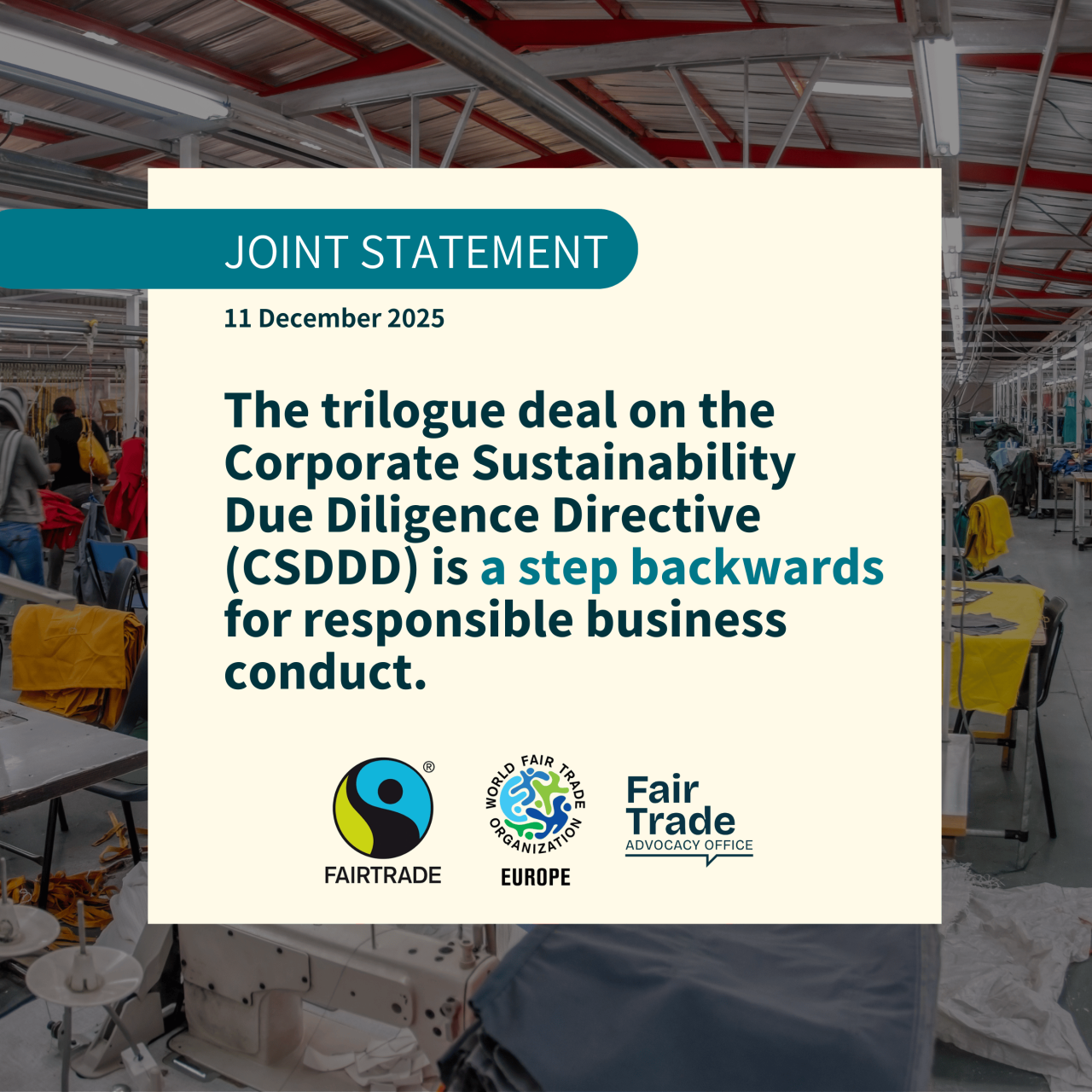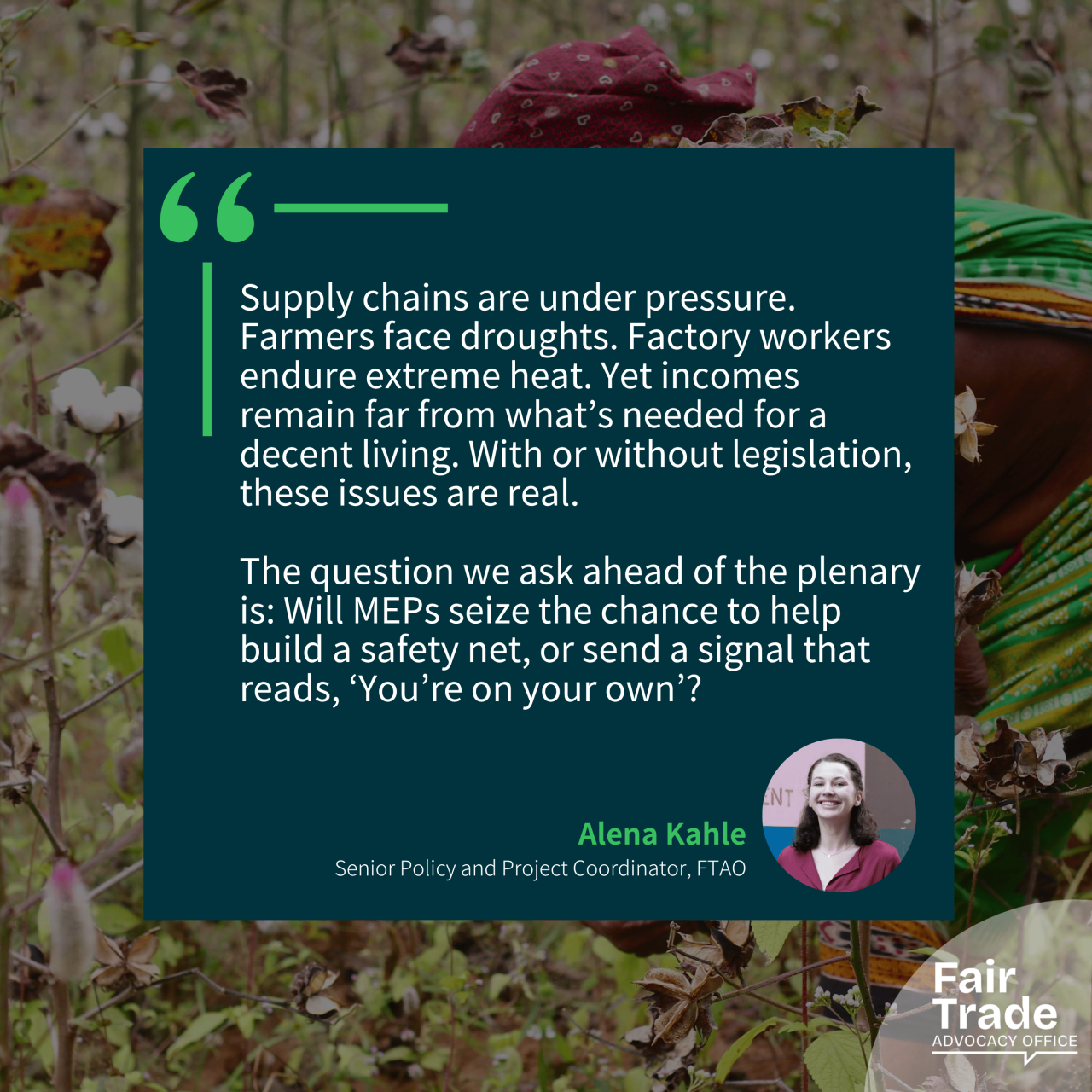Framework for assessing the impact of purchasing practices on human rights during due diligence practices

The Fair Trade Advocacy Office has compiled this matrix, which includes 26 potentially harmful purchasing practices, to provide an overview of how a company’s specific purchasing practices may put at risk the rights of people in its supply chains. This matrix is specifically designed to support the European Commission in creating guidance under Article 19 CSDDD for companies on how to conduct due diligence, particularly on how to adapt purchasing practices to prevent, mitigate and bring to an end adverse impacts.
As such, the matrix is designed to map how companies might be responsible for human rights violations in their supply chains (cause, jointly cause/contribute, linked to). Beyond this, the FTAO hopes that the matrix will also be useful for other actors involved in HREDD, including CSOs, academics, and companies.
The matrix consists of three steps:
- First, it compiles several purchasing practices that companies have been reported to frequently engage in, which can be considered unfair or harmful.
- Second, it gives an overview of the potential impact.
- Third, it assesses which human rights may be violated.
The full framework is available here.
Get in touch:
For more information about this matrix or the FTAO's work on CSDDD, please reach out to Alena Kahle, Senior Policy and Project Coordinator, at kahle@fairtrade-advocacy.org
More From The Workstream

Guidelines for a Living Income: Fair recommendations for Living Income Guidance in the Corporate Sustainability Due Diligence Directive

Trilogue deal on CSDDD is a step backwards for responsible business conduct

JOINT STATEMENT: Call for European Parliament to deliver a credible and ambitious approach on Omnibus I
